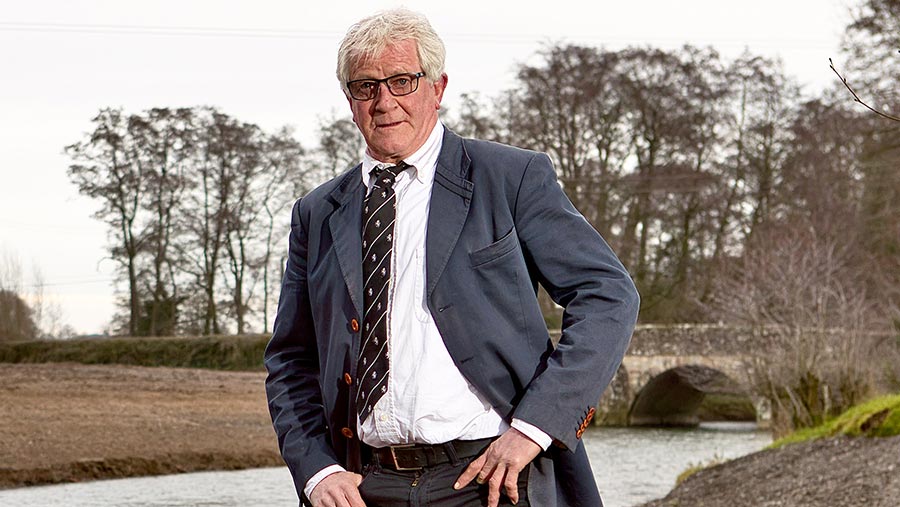Opinion: River Lugg case indicates ‘flexing of statutory muscle’
 John Price was sanctioned for his work on the River Lugg © Richard Stanton
John Price was sanctioned for his work on the River Lugg © Richard Stanton The punishment given recently to the Herefordshire farmer who took some heavy machinery to a stretch of the River Lugg site of special scientific interest (SSSI) is a throwback to when I started my job in 1984 and a Kent farmer who ignored an SSSI designation also got a jail sentence.
Back then, the relationship between farming and conservation interests was tense.
See also: Opinion – ELM scheme could wag farming dog
The equivalent of Natural England (NE) was embroiled in notifying SSSI designations, and conservation bodies saw the resulting compensation claims from farmers as money for nothing.
Farmers saw their freedom to manage land as they always had done being taken away – they had made these places deserve SSSI status, after all.
Some 40 years on, and after 30 years of agri-environment schemes, we’ve got so used to consensual and incentivised habitat management that it comes as a shock that anyone would still get a bulldozer out in the countryside, whatever their motivation.
The Environment Agency (EA) says its action concerning the River Lugg is a stark warning that it will act to protect the environment.
This case may be an exception, but I sense in it a flexing of statutory muscle, similar to the attempt to cut back on stocking on Dartmoor through revised stewardship agreements, and the proposed designation of Penwith Moors as an SSSI, both coming from NE.
I’ve always assured farmers that rollover stewardships can’t be varied, and that NE is unlikely to designate more SSSIs as it has enough to do already.
Neither of these is true, it seems, and it doesn’t bode well.
Just as farming is being weaned off area support and made to look to environmental schemes as a replacement, the statutory stick is being made very visible alongside the payment carrot, and consultation on SSSI looks as if it has gone backwards.
Meanwhile, the non-statutory conservation bodies, believing that their time has come, are encouraging farmers to cash in on their natural capital.
In the first Farmers Weekly article I wrote back in 2017, I warned that in the push to create Michael Gove’s vision of the future, farmers needed to be in control, schemes needed to be local, flexible and simple, and we needed to widen our view of the environment to reward farm systems that work well.
You tell me how much of that has come about.
I’m delighted when I read about farmers making new schemes work for them and stacking all the environmental opportunities, as the new jargon has it.
But it’s not for everyone, and the smaller and remoter your farm, the less chance you have.
A recent trip to my native Yorkshire Dales was a sharp reminder that we owe our finest landscapes to just such farms, and to the people who manage them as they always have done.
Will they have a place in this brave new world?
I have another reason to hark back to my first Farmers Weekly article. After six years, I’m stepping down.
I started writing four prime ministers ago, and before the Covid pandemic, Ukraine war and trade deals.
The Brexit vote was a recent event and no one knew what the future held. If you do know what the future holds, let me know and, meanwhile, keep on farming.

